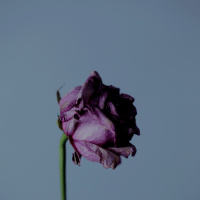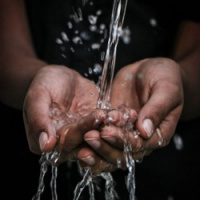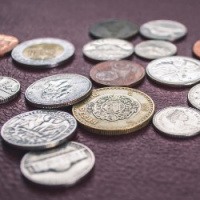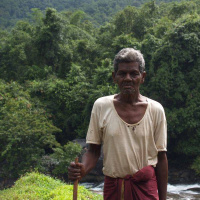Sinopsis
A podcast on Culture, History, Science, Tech and Productivity tips.
Episodios
-
073: Why do we remember things?
08/11/2019 Duración: 30minIn this episode we talk about how memory works.
-
072: Serial Killer Files Part 7 - Cyanide Lady
25/10/2019 Duración: 20minKerala was recently shocked to the news of a series of murder suspected by using cyanide by a lady. In this episode, we talk about Jolly Joseph and the mystery surrounding the deaths around her. As of today, she has confessed of having committed the crimes.Image: Unsplash
-
071: Cosmic Time Measurement In Hinduism
04/10/2019 Duración: 34minIn this episode, we talk about time measurement in Hindu culture.
-
070: Renting A House
20/09/2019 Duración: 31minIn this episode, we talk about what you need to know while renting a house in India.
-
068: Water Crisis In Bangalore
22/06/2019 Duración: 27minClick here to watch the episode on YouTubeIntroduction:The population in bangalore was 1.62 million back in the 1970s. Now there were nine million people in Bangalore in 2012. The count went up to eleven by 2018 and it is expected to reach 20 by 2030.In the period of 1970-2000 (30 years), the population has grown by 244%. And from 2001-2011, it has grown by 47%.The need for water has gone up with the increase in the number of people in the city.Causes:There were over 280 water bodies in the form of lakes and rivers in Bangalore in the 1960s and 1970s. The number has been cut down to around 80 in the present.Most of these have water which is not suitable for drinking due to the dumping of industrial effluents and garbage.Presently, 80% of the land in Bangalore is covered by concrete making it impossible for water to penetrate under the surface. This has drastically reduced the ability of rainwater to replenish groundwater.Instead of relying on water bodies, the people in Bangalore are highly reliant on groundw
-
067: History Of Money
05/06/2019 Duración: 33minBarter SystemBarter system has been in existence since 6000 BCEarliest forms of barter system had livestock trade (sheep, cattle, vegetables, grains)It was first recorded in EgyptMesopotamia to Phoenicians and the Babylonians improved the systemGoods were exchanged for food, tea, weapons, and spices. Even human skulls were used. Salt was a very important trade commodity that Roman soldiers were paid with it.Middle ages, Europeans traded crafts and fur for silks and perfumes.Musket balls, wheat, and deer skins were used by colonial americansThe invention of money did not kill barter system. But it made it organised.Barter system came back during the great depression of 1930s in a form similar to that of banks.Disadvantages:No certification of proof to show legitimacy of the person you are dealing withIt depends on trustPossible exchange of bad commoditiesNeed a double coincidence of wantsNo common measure of valueStorage issues highAdvantages:No need of moneyFlexibility that anything can be traded.Does not hav
-
066: Dyatlov Pass Incident
26/05/2019 Duración: 48minTo the east of the Ural mountains, in Yekaterinburg city cemetery, there is a group grave of 9 members from a hiking group who died mysteriously.TimelineArrived by train at Ivdel a town at the centre of the northern province of Sverdlovsk Oblast on 25th January 1959.Took a truck ride to Vizhai (last settlement towards the north).Hikers purchased and had loaves of bread when they were in Vizhai to keep energy high.Started trek towards Otorten from Vizhai on 27th January.Yuri Yudin returned on 28th due to health issues.On 31st, the hikers arrived at a highland area and started preparing for their climb. They saved surplus food in a wooded area for their return hike.Snowstorms resulted in hikers being deviated from their intended path and ended up on the slopes of Kholat Syakhl (Dead Mountain).Group decided to camp on the slopes of Kholat Syakhl instead of hiking all the way back into the wooded area about 1.5 km away. It is speculated that the group wanted to practice camping on a mountain slope.Dyatlov had tol
-
065: More horror featuring Indian Noir
17/05/2019 Duración: 01h14minHere is the second part of our conversation with Nikesh Murali, the producer of Indian Noir about horror and why humans are fascinated with the genre.Find Nikesh online:Indian NoirNikesh’s websiteunsplash-logosebastiaan stam
-
064: Why Is Horror So Fascinating? Featuring Indian Noir.
10/05/2019 Duración: 01h11minIn this episode, we sit down and chat with Nikesh Murali, the producer of Indian Noir about horror and why humans are fascinated with the genre.Find Nikesh online:Indian NoirNikesh’s websiteunsplash-logosebastiaan stam
-
063: Is Ejection Seat A Better Alternative?
16/03/2019 Duración: 28minWhat is ejection seat?The ejection seat is a safety mechanism primarily used in aircraft to save a pilot or a passenger by propelling the seat out of the disabled aircraft.An explosive charge or rocket is used to propel the seat to a safe distance and a parachute takes care of the rest of the journey down to the ground.Everald Calthorp who earlier had invented parachutes devised an ejection seat that used compressed air.Romanian inventor Ananstase Dragomir proposed the modern layout for ejection seats in the late 1920s. The parachuted cell design was tested on 25 August 1929 in Paris and got the design patented.The technique used before ejection seat was to simply jump out of the aircraft which in most cases was difficult as it would cause injury and was dangerous.As with most of the things, World War II led to the development and perfection of parachutes.Heinkel and SAAB developed the ejection seat independently. These early models were compressed air powered seats. Heinkel HE 280, the prototype jet fighter,
-
062: Beer Talk: Life 'N' Stuff
08/03/2019 Duración: 36minThis week, the boys sit down to discuss life 'n' stuff.
-
061: Personal Finance Ft. Naga From Passion People Podcast
12/02/2019 Duración: 01h03minIn this episode, Vishnu is joined by friend and fellow podcast producer Naga Subramanya from The Passion Poeple Podcast to discuss personal finance. Vishnu is a noob and Naga is an expert when it comes to personal finance. Enjoy their conversation, there are many gems of knowledge in this one.Some of the stuff we discuss:Power of compoundingMutual fundsSaving then spendingCredit Cards and DebtLoansInsurance and why term insurance.You can reach out to Naga here:The Passion People PodcastPassion Poeple Podcast on TwitterNaga’s email: naagasubramanya@gmail.comSharon McCutcheon
-
060: Cholanaikkans: The Lost Tribe
22/01/2019 Duración: 29minThe Cholanaikkans are an ethnic group of India, primarily inhabiting the southern Kerala State, especially Silent Valley National Park. They are one of the last remaining hunter-gatherer tribes of the region.Population: 190-200 (2001 census: 360~)Found in the late 1970sLive in caves and rely on hunting and gatheringDo not cultivate due to the destruction of produce by animals such as elephantsSaid to have moved to South due to natural disasters such as floods or fleeing due to their defeat under the dynasties from the NorthWorships trees and follow animism which is the belief that everything (living or non-living) is bound by some spiritual connectionThey are short in stature, wheatish to dark complexion, and well-builtHave their own distinctive languageFollow a patriarchal family structureThe literacy rate is around 16% with one graduate among them. Most drop out after one semester in schoolWe also talk about the Sentinelese from the Sentinel Islands. Enjoy!Image credits: Dhruvaraj S from India - A Cholanaik
-
059: The Humble Toilet
09/01/2019 Duración: 30minHistory of toiletsToilets and sewers came into being as early as 3000 B.C.Mohenjodaro had earliest forms of toilet which resembled western toilets. Waste was deposited into pits or drains.In Harappa, a primitive form of water cleaning toilet was used which utilised flowing water to remove waste.Indus valley civilisation is well known for its network of sewers built under the ground.In the west, toilets that used water were built in the Orkney Islands on the northern tip of Scotland dating back to 3100 B.C - 2500 B.C.By 18th century B.C, toilets made appearances in Egypt, parts of Greece and Persia.Remains of toilets have been found from a Neolithic village in Vietnam dating back to 1500 B.C.Romans used public toilets along with public baths. These toilets were elevated platforms over sewers that were periodically flushed with water.Greeks and Romans also used Chamber Pots that were brought to public meal and drinking parties! Yeah, let them sink in for a moment.Han dynasty in China used Pig toilets. An outhou
-
058: Serial Killer Files Part 6 - The Gangster From Madras
29/12/2018 Duración: 29minAuto Shankar is the nickname of an Indian serial killer Gowri Shankar. Shankar and his gang were found guilty of six murders, committed over a period of two years in 1988–1989.Name: Gowri ShankarKnown as: Auto ShankarDOB: January 21, 1954,Place: Kangeyanallur village, VelloreNumber of victims: 6Cause of death: HangingDeath: April 27, 1995Crime Spree: 1988-1989Fancycrave
-
057: The Wonderful Chocolate
18/12/2018 Duración: 32minChocolateChocolate is a magic stuff made of roasted ground cocoa seeds. One of the most popular dessert ingredients. Needs no introduction, of course, chocolate can be used in a solid, liquid (choco syrup) and in many other forms.The word chocolate comes from the Nahuatl word chocolātl. Nahuatl was spoken in the valley of Mexico during the Spanish conquest of Aztec in the 16th century.Chocolate has been very popular in desserts and other forms of food and African countries are leading producers of cocoa even though it originated in the Americas.Western Africa produces about two-thirds of the world’s cocoa and Ivory coast produces about half of it.Types of chocolate:Dark chocolate: Dark chocolate is a mixture of cocoa, fat and sugar. More the amount of cocoa, more bitter the chocolate.Unsweetened chocolate: This is unsweetened chocolate liquor called bitter or baking chocolate. It’s pure ground cocoa.Milk chocolate: Milk chocolate either contains milk powder of condensed milk with a minimum of 20-25% of cocoa
-
056: The Monolithic Wonder
20/11/2018 Duración: 32minShravanabelagola is one of the most sacred Jain centres in South India. The holy land is abundantly rich with centuries of history, glorious traditions and culture, distinctive religious nature and practices, and architecture. The place boasts a rare combination of diverse features which makes it a prominent place of pilgrimage and tourism. The town is bundled between the two hills of Vindhyagiri and Chandragiri and it is well known for its scenic beauty.Pratyk321 [CC BY-SA 4.0], from Wikimedia Commons
-
055: Why Is A Dog A Dog And Not Wolf?
07/11/2018 Duración: 44minEvo… what? EvolutionThe theory of evolution states that chemicals randomly orgnaised themselves into a self replicating molecule. The simple self-replicating molecule then underwent mutation and formed the complex organisms that ever existed on the earth. The theory consists of basicaly three parts:It is possible for the DNA of an organism to occasionally change, or mutate.The change brought about by a mutation is either beneficial, harmful or neutral.As mutations occur and spread over long periods of time, they cause new species to form.Mutations have seen to be affecting E-Coli bacteria which under right circumstances can replicate itself in every 20 minutes. By the process of mutation, certain bacteria can evolve which can be resistant to certain antibiotics. This is similar to certain insects becoming immune to DDT.DomesticationBut not all animals can be domesticated. Out of the 148 major terrestrial mammals, only 14 were domesticated and gthe theory is the for a species to be able to be domesticated, the
-
054: Is Smoking Cool?
30/10/2018 Duración: 46minThe origin of tobacco can be traced back to 6000 BC, in the American continent. It was considered medicinal and used as a painkiller.Smoking cannabis can be traced back to 2000 BC, India. It is also mentioned in Atharvaveda.Cannabis smoking in the middle east was common, especially Hookah. Even women took part in it privately.Christopher Columbus played a big part in getting it to the European continent1531 - first tobacco cultivation in Europe.By 1600, tobacco became an integral part of the society as a good section started smoking.In 1560, Jean Nicot took tobacco with him to Spain from FranceIn 1571, a Spanish doctor named Nicolas Monardes, apparently “found out” tobacco could cure 36 health problems (what a joke!)In 1588, Thomas Harriet, a Virginian, said that smoking gives the daily dose of tobacco. Not surprisingly, he died of nose cancer.English King James I was one of the first to speak against smokingTobacco used as an exchange during these time. The barter system did rely on tobacco.Africa was introd




























